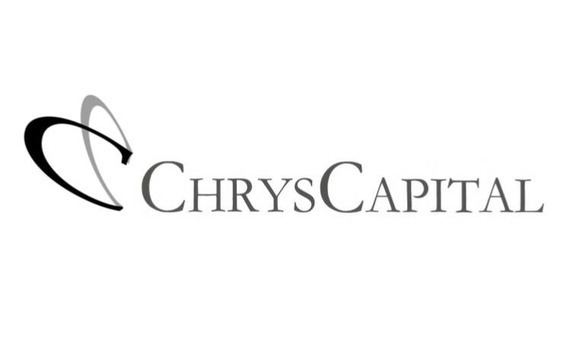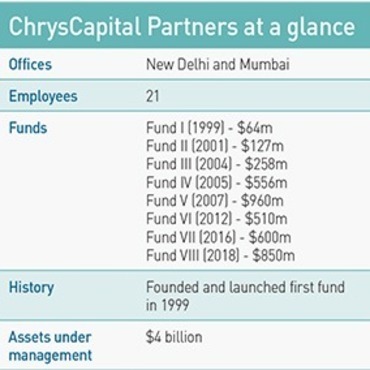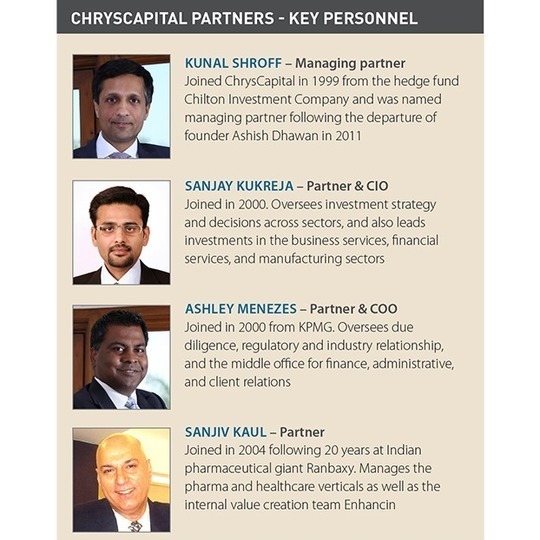
GP profile: ChrysCapital Partners

Over the last 20 years ChrysCapital Partners has become one of India’s most prominent private equity firms. The GP cites an internal culture of free and open discussion as the key to its sustained success
When asked what makes ChrysCapital Partners stand out from its peers in India's private equity industry, Sanjay Kukreja – a partner and CIO at the firm – points to the weekly advisory committee meeting. These three-hour discussions delve into every deal the firm is working on, with complete frankness encouraged, sometimes to a degree that visitors find shocking.
"There is no political angle involved in these discussions; we can be extremely free, and criticize each other very openly," says Kukreja. "I think that is unique – maybe we've gotten used to it, but people come in from outside and say, ‘My God, I would never have been able to say this anywhere else.'"
Beyond the freedom of these discussions, ChrysCapital employees also point to their egalitarian nature. All of the firm's 21 investment and operations personnel, from the most junior analyst to managing partner Kunal Shroff, is invited to voice their thoughts and indicate approval or disapproval of every deal. In the early days, even assistants were encouraged to participate. The inclusion of a wide range of voices helps to bring overlooked problems to light, along with potential investment opportunities that could be pursued.
ChrysCapital's advisory committee meetings are just an outward sign of a strong internal culture that over the past 20 years has made the firm one of the Indian private equity's biggest homegrown success stories. It also facilitated a leadership transition that few Asian GPs have managed smoothly when founder Ashish Dhawan stepped down in 2011 and was replaced by a core leadership council. ChrysCapital's persistence has earned the loyalty of LPs that have often struggled to navigate India.
"They're looking to back well-run institutions, rather than GPs that may have one or two centers of gravity within the team who are calling the shots while the rest just executes their instructions," says Gaurav Ahuja, a managing director and head of investor relations at the firm. "I think the depth, stability, and longevity of the team have become front and center for LPs in India."
The Harvard connection
ChrysCapital traces its beginnings to 1999, when Dhawan returned to India after a stint at Goldman Sachs in New York. Dhawan and Raj Kondur, a classmate from Harvard Business School, founded the firm as Chrysalis Capital and launched their first fund the same year. As originally envisioned, Chrysalis Capital was intended to back emerging technology businesses in India. However, these plans had to give way to the reality of India's then-sluggish technology development.
"We started as a VC firm because that was hot at the time, and we saw white space there. But I think we realized pretty quickly that businesses in India take much longer to scale, and in those days the internet penetration was very weak, so things weren't moving in the direction we wanted," Kukreja says.
The firm's pivot to growth investing came when Dhawan observed that Fund I's best-performing investments were in later-stage companies such as Spectramind and Mphasis. These deals are credited with salvaging the vehicle and allowing the firm to deliver a US dollar IRR in the high 20s. The VC strategy was dropped for Fund II.

Kaul's background was not in financial services; he was already well known in India as the head of international sales at domestic drug manufacturer Ranbaxy and credited with putting the country's pharmaceutical industry on the global map. Kaul had met Dhawan at Harvard in 1998 and had marked the ambitious student as a potential employee of Ranbaxy. Instead, he received a call from Dhawan several years later inviting him to join ChrysCapital as the first operating partner to work directly for an Indian private equity firm.
"I was a 25-year pharma industry veteran, talking to 25-year-olds with regards to what excited them going forward, where typically I would have been taking their interviews at Ranbaxy," remembers Kaul of his initial meetings with the team. "So that was a great eye-opener for me – at that point I realized that ChrysCapital would be different."
Under Dhawan's leadership the firm grew quickly, launching four more funds across its first eight years. Its fifth vehicle closed at $1.25 billion in 2007, but the global financial crisis proved disruptive. Larger investment opportunities dried up and a portion of the corpus was returned to investors. When ChrysCapital returned to the capital raising trail in 2012, it pledged to focus on lower middle market and ended up with a decidedly more modest $510 million for Fund VI.
This vehicle and its successors were launched without Dhawan. The performance of the funds under the new leadership council – initially a team of equals but later given structure with senior executive roles – would be another indicator of the strength of ChrysCapital's internal philosophy.
"We were excited that Ashish said to take it forward, as opposed to what you see normally where people are reluctant to leave, and if they do they keep a big chunk of the economics," says Shroff, who was elected managing partner following Dhawan's departure. "He said he was committed to Fund V, but beyond that it was up to us, and he gave us the economics to distribute to the rest of the team."
Eager to innovate
In hindsight, Dhawan's time at the firm is seen as ChrysCapital 1.0, while Shroff describes the current incarnation as ChrysCapital 2.0 or 2.5. The team has sought to maintain performance while continuing to direct the evolution of its internal structure and investment strategy so that it does not stagnate.
Having closed Fund VII at $600 million in 2017, the firm recently raised $850 million for its eighth vehicle, spending just four months in the market. LPs currently have net exposure only to this fund and the previous one – Fund V and its predecessors have been fully exited, while Fund VI has reached distributions to paid-in (DPI) of over 1x.
ChrysCapital also continues to make landmark deals, as in the case of Mankind Pharma. It first backed the company in 2007 before exiting eight years later with a 7.6x return. Last year, the GP returned to buy a 10% stake for $325 million, beating two global GPs and mobilizing significant LP co-investments.
Mankind is significant in several ways. Not only is it only the second deal for which the firm has brought in LP co-investors, but the transaction was completed at breakneck speed after the company's founding family invited it into a competitive bidding process at a late stage. That it was able to submit its winning bid under such time pressure is considered a testament to the mutually supportive philosophy ingrained into all employees.
"I think almost 80% of the firm was involved in that transaction, which we finished within 16 days," recalls COO Ashley Menezes. "We had one set of people working on due diligence, one set working on co-investment with LPs, and one set working on leverage. We could put that together because everyone knows their roles and responsibilities, and we have that basic culture as part of our constitution."
Co-investment is expected to become a growing factor in ChrysCapital's deal flow, allowing the firm to punch above its weight in transactions worth up to $500 million. On its own the firm expects to deploy $25-200 million per deal from the new fund.
This scaling up could be seen to reflect rising confidence – in the firm's own capabilities as well as in the broader Indian investment story – but innovation is happening in other areas. Most importantly, efforts are being made to unite the firm's competencies across the core sectors of financial services, healthcare, consumer, and IT services, to help it drive operational improvements in portfolio companies.
"I might do a great job in pharma, and my colleagues who were managing IT services or financial services were doing well there, but much of the learning was left in those silos," Kaul explains. "During the weekly meetings we would talk about the good things we were doing in these sectors and whether others could emulate them, but Kunal realized we needed to professionalize and institutionalize that sharing."
The fruit of these discussions was the creation in 2017 of Enhancin, ChrysCapital's internal value-add initiative. Headed by Kaul, the unit is designed to give portfolio companies an additional point of contact beyond the deal teams, allowing the firm to distinguish between what it calls outputs – raw financial returns – and outcomes, or the ultimate goal of the company. This might be an IPO, trade sale, or other form of exit.
Adding value
One of the first assignments for the Enhancin team was to help troubled portfolio company GVK Bio, a contract research and manufacturing pharmaceutical player that ChrysCapital had backed in 2015. The company was dealing with the fallout of a scandal at a clinical testing facility and high turnover at a US-based subsidiary. Enhancin helped implement a public relations strategy to mitigate the impact of the former, while improving the company's internal structure.
Though the firm has high hopes for Enhancin, the management team emphasizes that it is still a work in progress. The group has only three full-time members, including Kaul, and the firm is developing ways for it to partner with the deal teams so that portfolio companies do not receive conflicting messages from different teams.
"You can't just go the company and say you want to do this – you have to think about the best way to engage. It's not a one size fits all approach," says Shroff. "We will hire dedicated resources as we see the traction and response from the portfolio companies, and we have gotten very encouraging responses from them so far."
While ChrysCapital continues to evolve, it is focused on preserving the elements of its culture that have helped the firm reach its success. Chief among these is the core value of free exchange of ideas and valuing all opinions, no matter how low-ranking the source.
One recent manifestation of this value is a possible return to technology, one of the firm's first sectors. The older partners, still carrying memories of ChrysCapital's difficulties in the early years, began to entertain the idea after questions from junior employees about why the firm did not have a greater presence there.
"We've had a couple of discussions about the e-commerce opportunities, and we've noticed that a lot of the younger staff had a very different view than some of the more senior people," says Menezes. "We put one of the younger vice presidents in charge of that sector, to see if there is an opportunity to be looked at there. We may not close a transaction, but at least we're pushing our horizons to look beyond our biases."

Latest News
Asian GPs slow implementation of ESG policies - survey
Asia-based private equity firms are assigning more dedicated resources to environment, social, and governance (ESG) programmes, but policy changes have slowed in the past 12 months, in part due to concerns raised internally and by LPs, according to a...
Singapore fintech start-up LXA gets $10m seed round
New Enterprise Associates (NEA) has led a USD 10m seed round for Singapore’s LXA, a financial technology start-up launched by a former Asia senior executive at The Blackstone Group.
India's InCred announces $60m round, claims unicorn status
Indian non-bank lender InCred Financial Services said it has received INR 5bn (USD 60m) at a valuation of at least USD 1bn from unnamed investors including “a global private equity fund.”
Insight leads $50m round for Australia's Roller
Insight Partners has led a USD 50m round for Australia’s Roller, a venue management software provider specializing in family fun parks.







